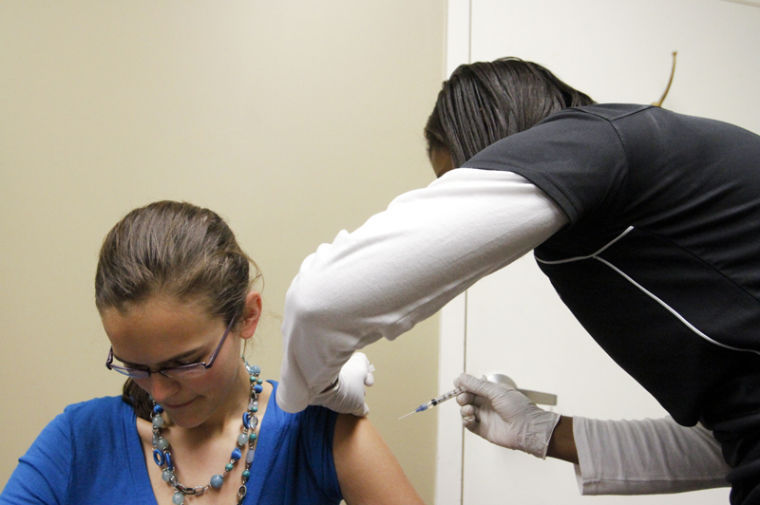How to avoid getting the flu as a college student
February 22, 2018
With the influenza virus on the rise, students are trying to avoid the illness any way they can.
The Courier-Journal reported that the death toll in Kentucky has risen to over 100. College students, especially ones who live on campus and are exposed to shared areas, have increased concerns for the virus.
The Centers for Disease Control and Prevention outlined a “Take 3” plan, encouraging people to take action in protecting themselves from the flu.
The first recommended step is getting the flu vaccination. The CDC stated that although there are many variations of the flu in a year, the vaccine generally covers most of them. Since prime vaccination time is in October, the best prevention method currently is practicing everyday germ preventative actions. The CDC also laid out common methods of germ prevention.
The first, and perhaps the most obvious, is to avoid contact with sick people. It is recommended to refrain from touching your eyes, nose and mouth. When washing your hands, use soap and water.
The CDC also recommends disinfecting your tables and work areas to remove any germs.
If you are the one who is sick, the CDC recommends avoiding contact with others until you have been symptom-free for 24 hours. If diagnosed with the flu, the CDC encourages the use of antiviral drugs when prescribed by a doctor.
According to the CDC website, “Studies show that flu antiviral drugs work best for treatment when they are started within 2 days of getting sick, but starting them later can still be helpful, especially if the sick person has a high risk factor or is very sick from the flu.”
These prevention techniques seem simple, but living on a campus with thousands of other students seems to complicate things.
Almost every surface college students use, whether it’s desks, tables in food areas or shared bathrooms, is shared by an innumerable amount of other people. Obviously, carrying around disinfectant wipes for every desk, table and chair seems a little excessive.
The Harvard Medical School laid out numerous ways to help naturally strengthen the immune system. The list emphasizes the importance of leading a healthier lifestyle.
“Following general good-health guidelines is the single best step you can take toward naturally keeping your immune system strong and healthy,” according to the Harvard Medical School. “Every part of your body, including your immune system, functions better when protected from environmental assaults and bolstered by healthy-living strategies.”
Exercising regularly, making healthier food choices, getting an adequate amount of sleep, and minimizing stress levels are what the Harvard Medical School defines as a more balanced lifestyle.
Once again, these are all easier said than done while on a college campus. With deadlines, fast food and little or no time for relaxation, even the natural immunity boosters seem to fall short.
Despite this, there are still several campus resources that are available to students. For flu screenings and treatment, the Graves-Gilbert Medical Clinic is open weekdays from 8 a.m.-6 p.m.
On-campus resources to help develop a healthier lifestyle include the Counseling and Testing Center located in Potter Hall and the Preston Health and Activities Center.
Features reporter Laurel Deppen can be reached at 270-745-6291 and [email protected].




















![Megan Inman of Tennessee cries after embracing Drag performer and transgender advocate Jasmine St. James at the 9th Annual WKU Housing and Residence Life Drag Show at Knicely Conference Center on April 4, 2024. “[The community] was so warm and welcoming when I came out, if it wasn’t for the queens I wouldn’t be here,” Inman said.](https://wkuherald.com/wp-content/uploads/2024/04/smith_von_drag_3-600x419.jpg)


